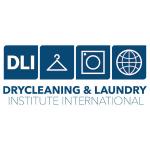CHICAGO — To those new to owning a drycleaning industry, there might seem to be no end of decisions they have to make and questions they need answered to steer their company in the right direction. For industry veterans who can draw from their experience, however, the answers can seem simple, or at least straightforward.
In Part 1 of this series, we asked industry veterans for answers they wish they would have known when first starting out in the field, and in Part 2, we examined some of the first steps new cleaners should take to give them the best chance of success. Today, we’ll wrap things up by delving into the value of networking and setting trackable goals for long-term success.
Building Knowledge and Networks
In a field as rapidly evolving as the drycleaning industry, Jennifer Whitmarsh, who opened Snappy Dry Cleaning in Williamsville, New York, in November 2022, knows that it is vital to continuously look for learning opportunities, whether you’re new to the industry or a veteran.
“I would 100% suggest going to the DLI (Drycleaning & Laundry Institute) training,” she says. “I was fortunate enough to go to that in 2019 for both their intro and the advanced classes. Now, at that time, I had 15 years under my belt, and I was going to an intro course. A lot of people would have said, ‘I already know this, I don’t need to go to that class.’ But you want to build as strong a foundation as you can. For me, the hands-on experience and the schooling experience were so important.”
It was also instrumental in building her network of peers.
“Not only do you learn techniques, but you also get to meet other individuals in our industry,” Whitmarsh says. “That’s what got my feet wet when it came to learning about this whole other world out there.”
She understands that this search for knowledge will continue throughout her career.
“Soak up as much education as you can,” she says. “There are a lot of free things that you do when you’re part of an association. You don’t have to join all of them — not everyone can do that. Pick an association — a national or even a regional one — and join so you can get to know other people and get to start to learn the lay of the land.”
Having a group of people available to answer questions, bounce ideas off of, or simply to share the challenges of leadership is invaluable, Whitmarsh says. Many people in the drycleaning industry embrace this type of interaction.
“Most of the professionals in our industry just want to help people,” she says. “They just want to share what they know. And everyone’s got their own way — it doesn’t mean that everybody’s right — but it’s important to share the knowledge with people. I’ve got an entire network of people available who I didn’t have prior to 2019. Just last week, I called somebody about linens. It all depends on the question, so I just utilize the network. And they are friendships — it’s more than just a network.”
Apart from organization, Brian Butler, president of Columbus, Ohio-based Dublin Cleaners and a third-generation cleaner, has found another method of continuing his education and that of his team members.
“Our industry has some amazing consultants,” he says. “They are not cheap, and yet are worth every penny. Find out who’s available in your market and figure out how to pay for it because it’s going to pay you back — they know their stuff, and they stay current on equipment and trends.”
Setting Goals for Today and Tomorrow
When it comes to charting a course for your business, Whitmarsh believes in starting with the end in mind.
“I’m already thinking about how to sell Snappy, and I love my cleaners — I’m not going anywhere,” she says. “But I also know that I don’t want to be 85 years old and trying to fix a machine that’s broken because no one else knows how to do it. Think about what kind of life and what kind of freedoms you want in your 50s, 60s, 70s and beyond. Think about your goals and reverse engineer them.”
As for short-term goals, Whitmarsh urges owners to pay attention to how their business treats its customers.
“Think about how you want your customer experience to be, and think about how you’ll get there,” she says. “Then live it, breathe it, understand it, execute it, practice it and train it to the best of your ability, over and over again with every single team member. Just because I’m not at the front counter of Snappy Dry Cleaning shouldn’t mean that the customers are going to get a different service.”
Parting Advice
While there are a lot of moving parts to running a business, and it can feel daunting when first starting out, Whitmarsh says it pays to focus on one thing at a time.
“Look at your processes,” she says. “It’s a big elephant to eat, so don’t get overwhelmed. Look at your processes, figure them out, hammer them down and train to them.”
Above all, Butler says, have an optimistic but realistic attitude about the business and the big picture.
“This industry is not for the faint-hearted, but it can be rewarding,” he says. “I’d imagine farming the same way. That’s another group who works very hard for their money, but many of them look very happy and content with what they’re doing. My family has enjoyed a good life for three generations in dry cleaning, and made it through everything from the Great Depression to World War II to COVID. So, if you come committed, it can reward you.”
For Part 1 of this series, click HERE. For Part 2, click HERE.
Have a question or comment? E-mail our editor Dave Davis at [email protected].















































































































